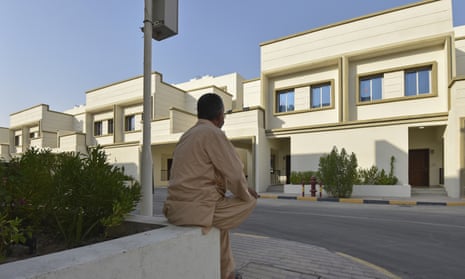Talks are under way in Doha and New York to try to reach an international consensus on the conditions for recognising the Taliban government in Afghanistan. There are signs of tensions between superpowers after Russia called on the US to release Afghan central bank reserves that Washington blocked after the Taliban’s takeover of Kabul earlier this month.
“If our western colleagues are actually worried about the fate of the Afghan people, then we must not create additional problems for them by freezing gold and foreign exchange reserves,” said the Kremlin’s envoy to Afghanistan, Zamir Kabulov.
He said the US must urgently unfreeze these assets, “to bolster the rate of the collapsing national currency”.
The leading western G7 powers are meeting Turkey, Qatar and Nato in Doha to discuss further details of the how Kabul’s civilian airport could be reopened to allow those that want to leave Afghanistan with valid documents to do so. More than 100 nations signed a joint statement saying the Taliban has agreed to facilitate this. The US secretary of state, Antony Blinken, is chairing the meeting and due to announce its outcome later.
At the same the German foreign minister, Heiko Maas, started a four-day sweep through countries bordering Afghanistan to secure their agreement to house refugees temporarily, or to use the country as a transit point pending processing. So far Qatar has acted as the transit point for more than 40% of the 100,000-plus refugees airlifted out of the country. Maas is due to visit Uzbekistan, Tajikistan, Turkey and Pakistan.
In Turkey, his first stopover, Maas said he was grateful for the country’s offer. “We ask the Taliban to promise to provide security,” he said. “We have to negotiate with the Taliban. They want the airport to be operated. In this regard, we are ready to contribute both financially and technically.”
James Cleverly, the UK minister for the Middle East and North Africa, said he could not see how Kabul airport could be operated by foreign powers without boots on the ground, something that is not currently possible.
On Monday, António Guterres, the UN secretary general, will convene a meeting in New York of ambassadors from the five permanent members of the UN security council – Russia, China, the US, the UK, and France – to discuss a potential joint resolution on Afghanistan. The resolution has been under discussion over the weekend.
The UK has said its four international priorities are: preventing Afghanistan becoming a haven for terrorists; responding to the humanitarian plight; safeguarding regional stability; and holding the Taliban to account on human rights. The UK foreign secretary, Dominic Raab, has said it is necessary for the west to work pragmatically with Russia and China on the future of Afghanistan.
The Kremlin on Monday welcomed French president Emmanuel Macron’s proposal to create a “safe zone” in Kabul to protect humanitarian operations.
“This is certainly a proposal that must be discussed,” Kremlin spokesman Dmitry Peskov told reporters.
